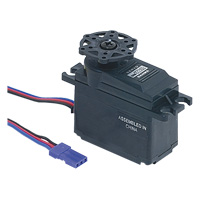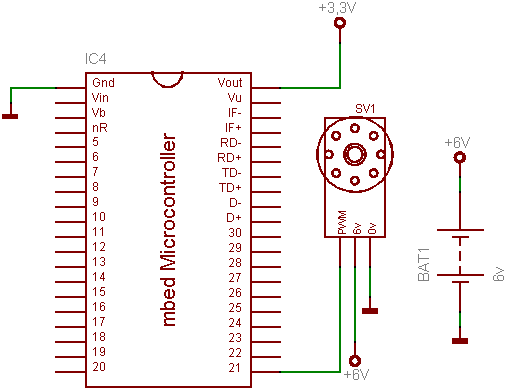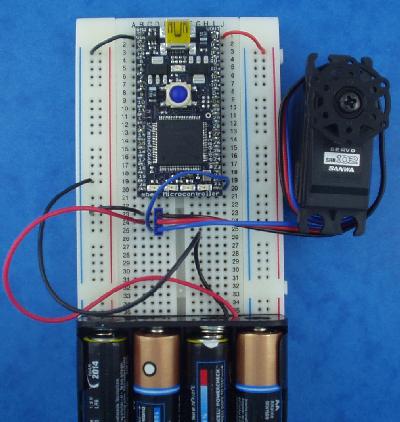You are viewing an older revision! See the latest version
Servo
A library for controlling a R/C model Servo.

- /users/simon/programs/Servo - R/C Servo Library
A standard R/C model servo is controlled using a PwmOut signal, and provides control of the servo between min and max by setting it to 0.0 - 1.0.
The underlying PwmOut period is set to 20ms, and by varying the pulsewidth (up to a maximum of 0.5ms to 2.5ms) the position of the servo is changed, usually by around 180 degrees. The library lets you calibrate the exact range.
main.cpp
#include "mbed.h"
#include "Servo.h"
Servo myservo(p21);
Serial pc(USBTX, USBRX);
int main() {
printf("Servo Calibration Controls:\n");
printf("1,2,3 - Position Servo (full left, middle, full right)\n");
printf("4,5 - Decrease or Increase range\n");
float range = 0.0005;
float position = 0.5;
while(1) {
switch(pc.getc()) {
case '1': position = 0.0; break;
case '2': position = 0.5; break;
case '3': position = 1.0; break;
case '4': range += 0.0001; break;
case '5': range -= 0.0001; break;
}
printf("position = %.1f, range = +/-%0.4f\n", position, range);
myservo.calibrate(range, 45.0);
myservo = position;
}
}
/users/simon/programs/ServoProgram
Warning
A servo requires higher current than the USB port can safely provide, and so it is essential that you power the servo using an external supply, such as a 4xAA (6v) battery pack or an appropriate DC power adaptor.

